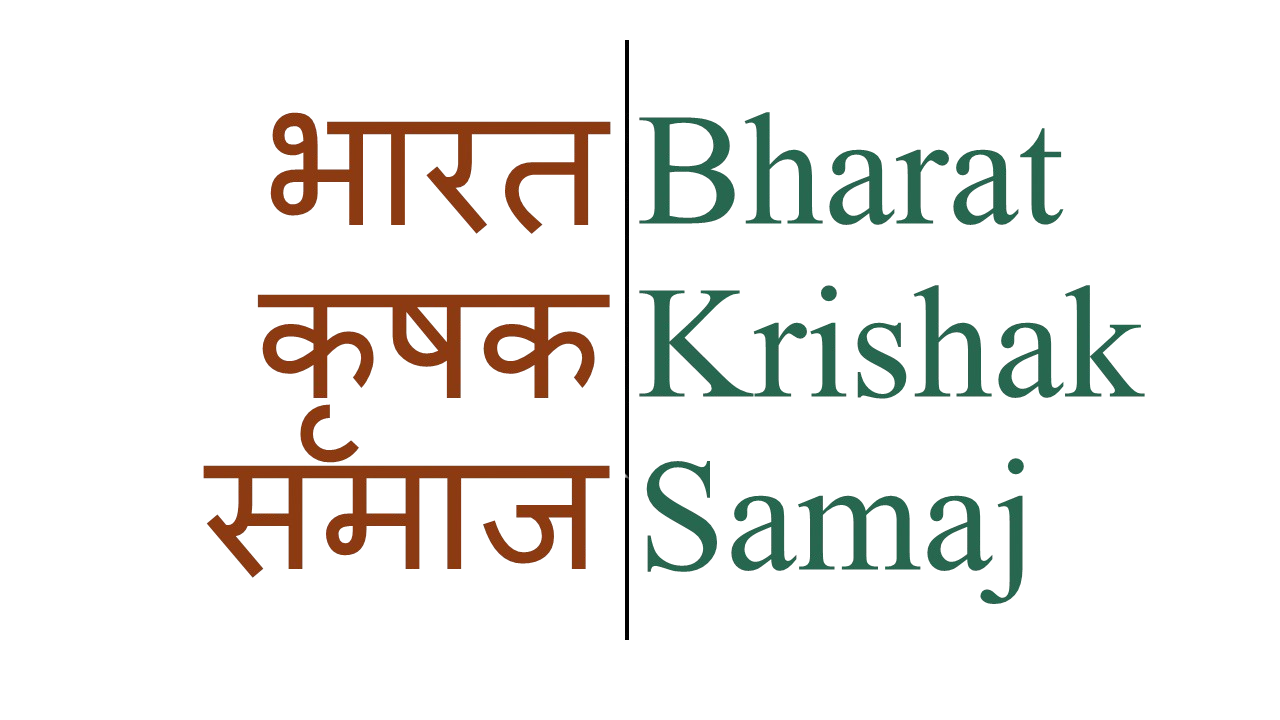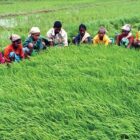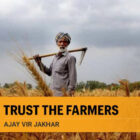Farmer unions must understand the wider implications of all policies and widen the horizon of their arguments vis-a-vis farmer rights and policy wrongs.
Every day, a gold miner in Russia leaves a mine with a wheelbarrow full of sand. Every day, the guard thoroughly checks the sand. On the day of his retirement, the guard asks the worker, “I know you have been stealing something, but can’t figure out what it is”. The worker whispers back, “I wasn’t hiding anything in the sand, I stole the wheelbarrows”. A similar predicament of limited perspective afflicts India’s farmer unions. Union leadership, often secure in their certainties, are oblivious of the larger picture. It is equally possible that in order to hold on to their positions, they simply confined themselves to issues that resonate directly with the farmers.
There can be no transformation of rural livelihoods based on minimum support prices, free electricity and cheap fertilisers. Advocacy on limited issues has only led to farmer unions conceding the agriculture policy space to business-funded lobby groups. The likes of the CII, Ficci, the PHD Chamber of Commerce or the Assocham and the Fertiliser Association of India, who further the vested agenda of their members. A few individuals in the guise of representing farmer organisations have muddied the waters by becoming lobbyists for the farm-input industry, just like the international consulting firms. Of late, donors like the Bill and Melinda Gates Foundation have shifted advocacy from nutrition policy to food fortification.
In order to make farmer prosperity the fulcrum of the debate, the unions have to expand their advocacy to include all the issues that have a strong bearing on the future of farmer livelihoods. That should include the state of the national economy, governance, transparency, revenue collections and allocation of resources. Equally critical are issues like the rupee exchange rate, relative inflation and improving nutrition by generating consumer demand for fruits, vegetables and proteins in India, which happens to be the amongst the lowest in the world.
One is not being a votary for farm support reduction but for the repurposing of subsidies towards the farm ecosystem services. This is going to be a very painful transition for farmers and a metamorphosis may be possible if farmer leaders reach out to them repeatedly to explain how the present structure of subsidies is not only self-defeating but also shifts the costs to future generations. Only, and only then, will politicians pluck the political will and courage to initiate bold structural reforms.
Many organisations supportive of PM-Kisan or cash transfers as a solution do not realise that the changing narrative is paving the way for the government to slowly abdicate on its constitutional responsibilities of providing primary healthcare, quality rural education, sanitation, farm extension, veterinary services and public transport.
In the recently concluded Food Systems Dialogues, the former head of RAW, Alok Joshi, observed that the protesting farmer unions are unprepared to negotiate settlements and are thus unable to bridge the lacuna between demand and delivery. Karl Marx compared farmers to a “sack of potatoes”, as they only organise in response to specific issues and then drift back to work on the farms. Farmers are incapable of forming a consistent common identity. The existing identity, rather than inspiring profound change, falters as a reaction to circumstances.
Affiliation to political parties has been another poisonous pill for the unions. Their leaderships have often become family affairs, where affiliation is rewarded by plum positions when their political mentors are in power. Adding to the morass are those who commit the sin of simony by seeking caste concessions, which has led to a loss of trust, diluted leadership authority and destroyed the unity of farmers. Having lost faith in the system and in farmer leaders, the temporary outpourings on localised issues can only spiral into faceless protests, manifesting into widespread rural disobedience, whether fuelled by ethnic, migrant or caste conflicts, as in Haryana in 2016.
The BJP has gained politically by prioritising “food inflation mitigation measures”, which have come at a high cost of deteriorating farmer livelihoods. Farmers and those representing them need to introspect. Rather than continuously berating the government, they need to change tactics, stop behaving as losers and clearly understand that they are in the soup for no reason other than that they have developed a consistent tendency to vote for reasons that have nothing to do with their own stagnating economic condition.




